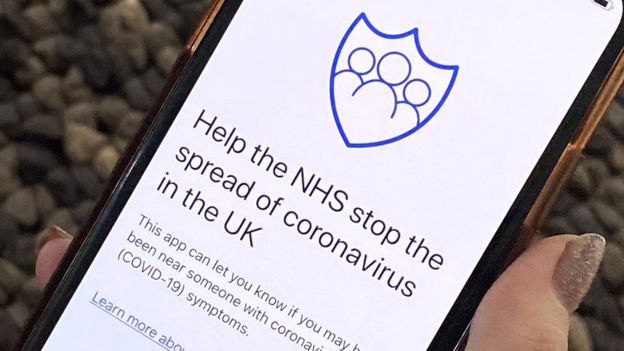UK says coronavirus contact tracing app could be nationwide in weeks

Testing of an NHS contact-tracing app that could help the UK emerge from lockdown is now underway in the Isle of Wight, starting with NHS workers and council staff.
The smartphone app developed by NHSX is part of the UK's ‘test, track, trace’ strategy to relax social distancing measures. If the first phase of implementation is successful it could be rolled out across England by the middle of May, and nationwide within the next few weeks.
As an easing of the lockdown is considered to help limit damage to the economy, the plan is to combine widespread testing with contact-tracing to monitor and reduce any future COVID-19 outbreaks, according to the government.
Contact-tracing smartphone apps use wireless signals such as Bluetooth to exchange a ‘digital handshake’ with another user when they come within a set distance of each other for a particular length of time – 2m and 15 minutes in the case of the UK app.
The app logs the contact, encrypts it, and notifies the user if they have had close contact with another user who has tested positive – and chosen to update their status on the app of course – giving them advice to self-isolate.
Questions are however already being asked about data security and privacy for app users, as well as the performance of the software, with a Health Service Journal report suggesting that so far the app has failed tests needed to be included on the NHS app store.
The rollout of the NHS COVID-19 app will extend to all residents in the Isle of Wight on Thursday, and will be used to complement conventional contact tracing methods by telephone and online.
The island was chosen for the trial because it has a low number of new infections and is covered by a single NHS Trust, and because travel to and from the island is fairly restricted.
After the pilot testing stage, the app will be referred back to NHS Digital for another assessment, according to the HSJ.
Last month, Australia launched its own contact-tracing app – called COVIDSafe – which was downloaded by more than 3.5 million people in the five days after its release. The Australian government has said that around 40% of the population would need to download it for maximum effectiveness.
Bespoke systems that – like the UK app – are based on government oversight of the data via a central server have already been deployed in Singapore, China, South Korea, India and Israel.
Meanwhile, Germany, Italy, Austria and the US are among countries concentrating on apps that make use of a decentralised tracing platform, developed by Google and Apple, that is trying to avoid privacy issues.
Health Secretary Matt Hancock told the BBC this morning that the problem with decentralised tracing is that it cannot identify when there is a spike in cases in a particular area.
On the issue of privacy, he said: “The data is stored on your own phone, until you need to contact the NHS, in the same way you would through your GP or through 111 in order to get a test.”
“Ultimately, this is about unlocking people’s liberties, because…you can hold down the spread of the disease whilst hopefully releasing some more of the blanket social distancing measures that we are having to use at the moment.”
The start of contact tracing comes as the UK saw a near 4,000 increase in the number of confirmed cases of COVID-19, with a 288 increase in deaths – lower than at any point since the end of March.
Niall Dickson, chief executive of the NHS Confederation which represents organisations across the healthcare sector, said that with the new government strategy “We are beginning to see light at the end of this long, dark tunnel.”
He said that to get the epidemic under control and escape lockdown it will be necessary to have contact tracing and continued social distancing for the time being. Prime Minister Boris Johnson is due to set out the UK’s roadmap to emerge from lockdown on Sunday.
“The tracing app looks exciting but as the Secretary of State has accepted it is not the answer in itself – we will also need that army of contact tracers to stop further spread,” continued Dickson.
“This is well-worn territory for local authorities and public health professionals and the sooner the system is up and ready to roll out the better,” he added.
“At the same time, staff in the NHS and social care must remain a priority for testing – and this will become even more important as the NHS steps up to resume care and treatment that has been stopped or curtailed by the pandemic.”












